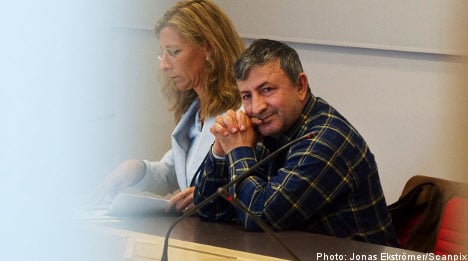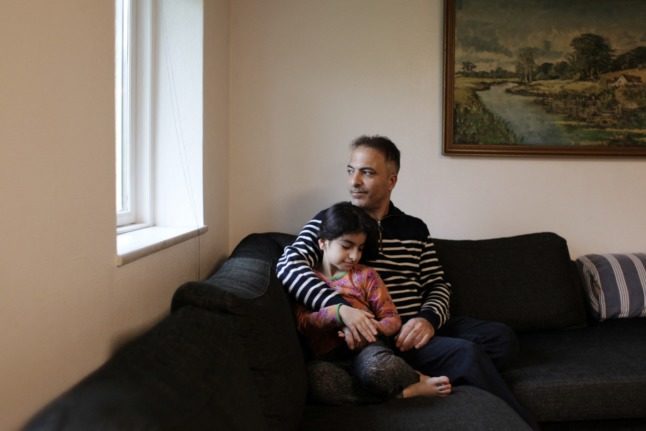The confidential appendix to court documents reviewed by TV4 includes details of bugged conversations between the Syrian charge d’affaires and Social Democrat politician Abdo Goriya, who was arrested near his home on Monday.
Goriya, 53, was remanded in custody on Thursday on suspicion of conspiring in April and May to kidnap the diplomat’s 18-year-old daughter, who the diplomat said had “brought dishonour” on him by entering into an amorous relationship with a schoolmate. The Stockholm politician, who has Syrian roots, denies committing an offence, arguing that he simply wished to assist the diplomat with his family problems.
In conversations recorded by Säpo, the diplomat spoke to Goriya of how he had informed his daughter that her relationship was a mortal sin. He forced her to stay at home and beat her for several days running.
The young woman reported her father to the police but later retracted her statement when her mother threatened to commit suicide.
Goriya was brought in as a form of mediator between the girl, her family, and her boyfriend’s family. Although the politician has previously been involved in campaigns against honour-related violence, Goriya backed the diplomat in the wiretapped phone calls, saying it was “awful” that people couldn’t bring up their own children how they liked in Sweden.
The two men discussed how best to get the diplomat’s daughter back to Syria. Goriya offered to help and suggested that the 18-year-old should be lured out of Sweden by means of a holiday in Turkey.
“He then says that her family in Syria can take her by the ear and find somebody suitable for her,” according to the secret court document.
The diplomat’s daughter remains in Sweden and is receiving police protection. The Syrian charge d’affaires, whose diplomatic immunity shielded him from prosecution, has now left Sweden with the rest of his family.
Säpo and the foreign ministry have refused to comment on the nature of the suspected intelligence operation that the security police were seeking to investigate.



 Please whitelist us to continue reading.
Please whitelist us to continue reading.